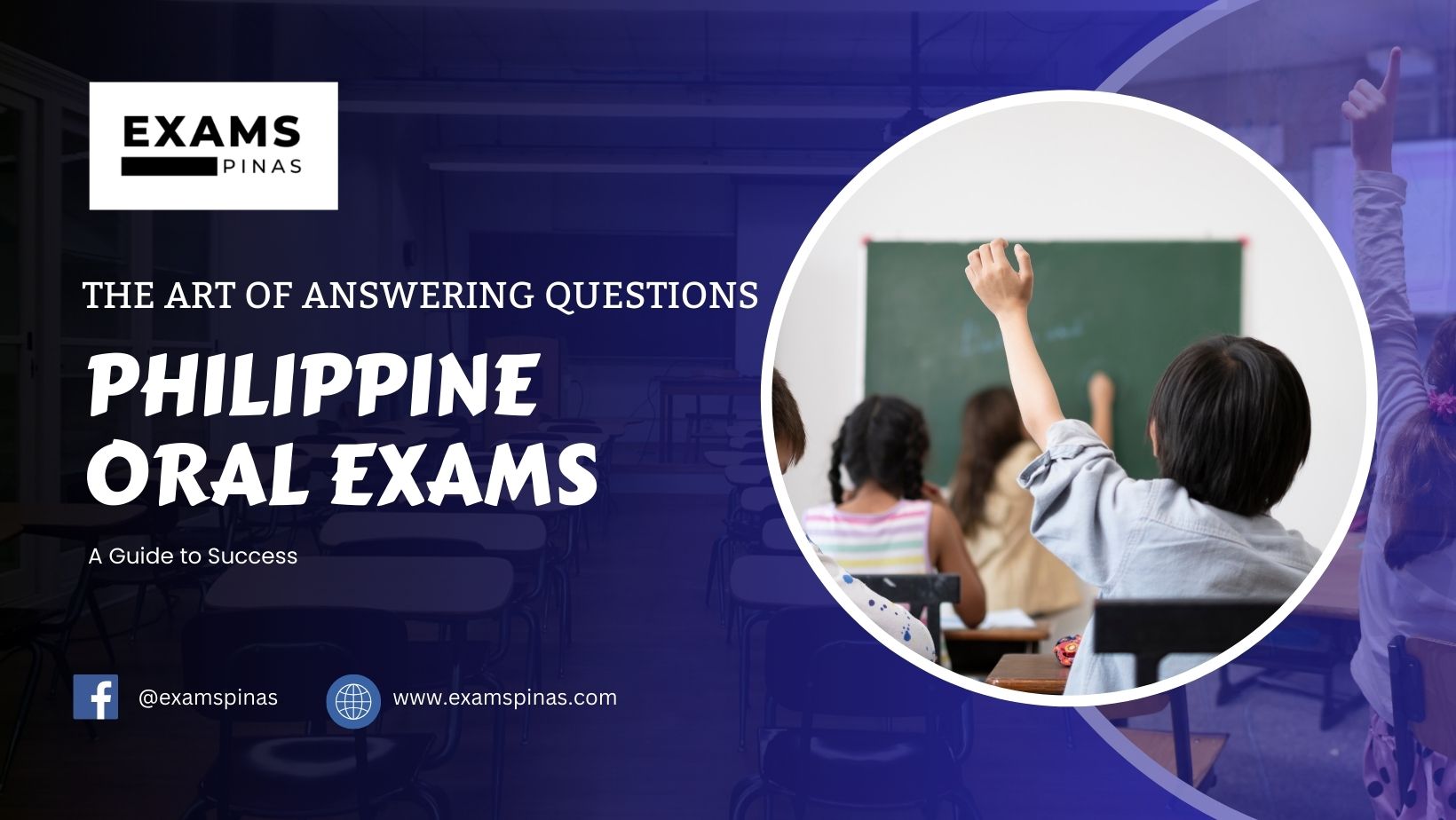Oral exams in the Philippines play a crucial role in assessing a candidate’s ability to communicate effectively, demonstrate knowledge, and think on their feet. Mastering the art of answering questions is essential for success in these examinations. This article will delve into techniques for attentive listening, crafting clear and concise responses, and addressing various aspects of questions to excel in Philippine oral exams.
Techniques for Attentive Listening
Listening carefully to the questions posed during an oral exam is the foundation of providing accurate and relevant answers. Here are some effective techniques:
1. Maintain Focus and Presence
- Clear your mind of distractions and maintain full concentration on the examiner’s question.
- Demonstrate active engagement through eye contact, nodding, and other non-verbal cues.
2. Avoid Interrupting
- Allow the examiner to complete the question before formulating your response.
- Use short pauses to ensure the question is fully understood before answering.
3. Take Brief Notes
- Jot down key points or keywords as the question is being asked to aid memory.
- Focus on capturing the essence of the question without becoming overly reliant on notes.
Crafting Clear and Concise Responses
Once the question is understood, the next challenge is to deliver a response that is articulate and to the point. Consider these strategies:
1. Structure Your Response
- Begin with a brief introduction to provide context for your answer.
- Organize your response logically, presenting ideas in a clear sequence.
2. Address Each Aspect of the Question
- Break down multi-faceted questions into components and address each part separately.
- Ensure that your response comprehensively covers all aspects of the question.
3. Use Examples to Illustrate Points
- Support your answers with relevant examples or case studies to enhance clarity.
- Real-world instances can strengthen the credibility of your response.
Relating Techniques to Philippine Oral Exams
In the context of Philippine oral exams, the ability to answer questions effectively is highly valued. Examiners often assess not only the correctness of the response but also the candidate’s communication skills. Here’s how these techniques can be applied specifically to Philippine examinations:
1. Cultural Sensitivity in Responses
- Acknowledge and respect the cultural context when formulating responses.
- Be aware of local nuances and incorporate them into your answers when relevant.
2. Emphasis on Clarity in Communication
- Philippine exams prioritize clear and concise communication.
- Practice articulating your thoughts in a straightforward manner, avoiding unnecessary jargon.
3. Inclusion of Real-World Philippine Scenarios
- Use examples from Philippine history, culture, or current events to enrich your responses.
- Relating your answers to local contexts demonstrates a deeper understanding.
By mastering the art of answering questions in Philippine oral exams, candidates can enhance their overall performance and leave a lasting impression on examiners. These techniques not only apply universally to oral assessments but also cater specifically to the nuances of Philippine examinations, ensuring a well-rounded and culturally sensitive approach to responding effectively.

